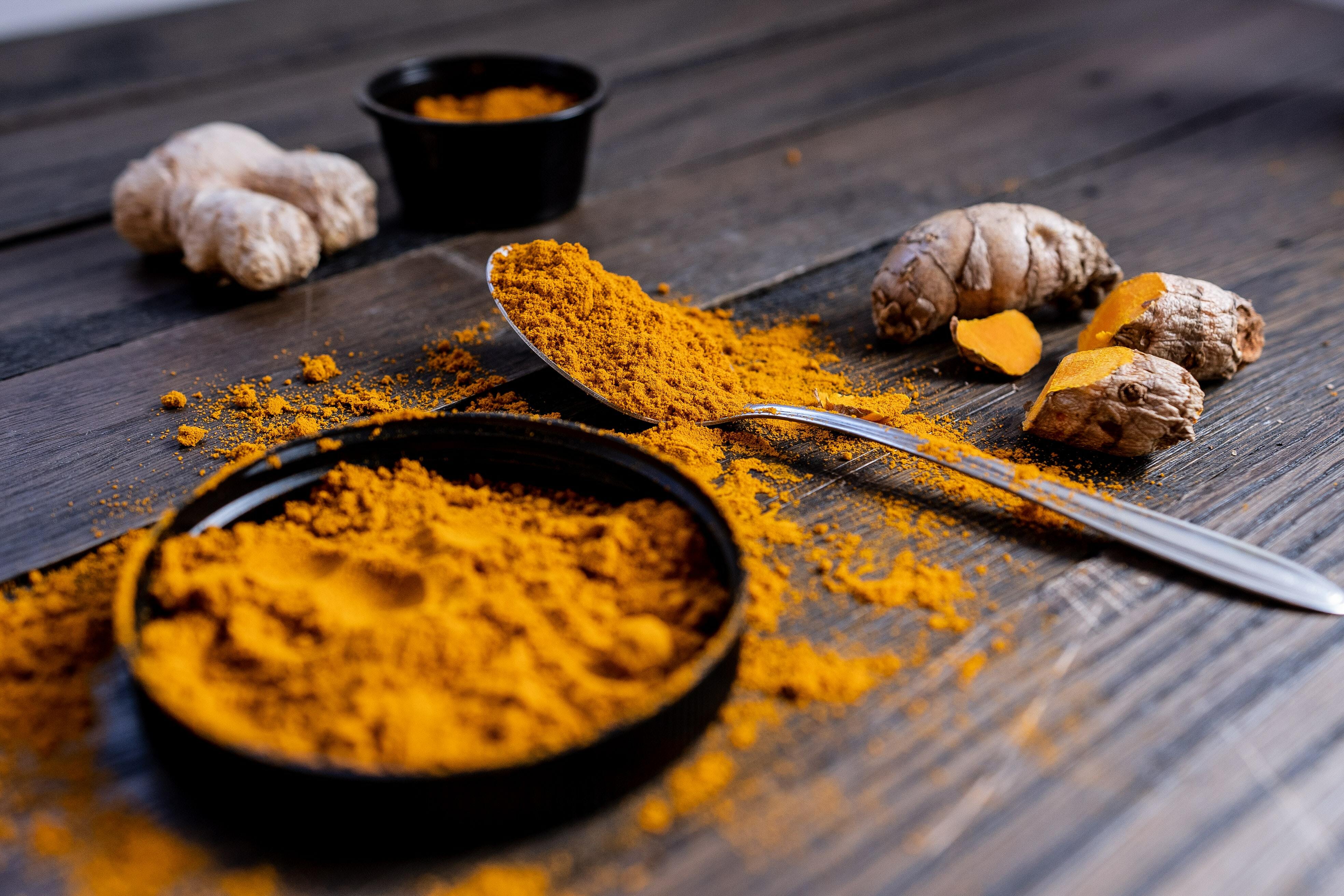
Turmeric is a flowering plant, Curcuma longa, of the ginger family, Zingiberaceae (en.m.wikipedia.org/turmeric). It is native to Southeast Asia and the Indian Subcontinent. It needs a good amount of rain and the temperature needs to be between 20 and 30 degrees Celius to live. People use the rhizomes in their cooking either fresh or boiled in water and then dried.
Turmeric Benefits
1) Turmeric may help reduce the symptoms of arthritis since it is an anti-inflammatory. Curcumin is proven to improve immune function with anti-oxidant, anti-inflammatory, antiviral, and antibacterial properties.
2) Turmeric may improve heart health.
3) Turmeric may prevent cancer. "Turmeric may be able to influence the growth, development, and spread of breast, colon, stomach, and skin cancer cells at a molecular level" (tegaorganictea.com/blogs).
4) Turmeric may prevent Alzheimer's by "consuming turmeric could help prevent the onset of Alzheimer's. Curcumin aids in clearing up amyloid plaques, a key factor in the disease's development" (tegaorganictea.com/blogs).
5) Turmeric may help lower cholesterol. "Using turmeric to season your food can significantly lower blood cholesterol levels and suppress plaque buildup in the arteries" (tegaorganictea.com/blogs).
6). Turmeric can speed up the healing of wounds, reduce acne, prevent scarring, and control flareups caused by psoriasis.
7) Can benefit people with depression. "There is evidence that curcumin can increase the brain neurotransmitters that produce dopamine and serotonin" (tegaorganictea.com/blogs).
Possible Side Effects:
You should use turmeric short term. There can be mild side effects like:
acid reflux
diarrhea
dizziness
headaches
and upset stomach
If you do get these side effects stop taking the turmeric and tell your doctor.
Dosage:
This is the recommendation for adults: 1.5 grams daily for up to 9 months. Speak to your doctor about the right dosage for you if you have a specific problem.
Interactions
The following medications may have an interaction with turmeric:
- anticoagulant/antiplatelet drugs
-Talinolol
-Sulfasalazine
-antidiabetic drugs
- Tacrolimus (Prograf)
- Warfarin (coumadin)
- medications for cancer
- liver medications
- Estrogen
- norfloxacin, etc
I personally use turmeric in my diet. My favorite tea (I made this up) is adding turmeric, ginger, honey, cayenne pepper, and dried peppermint in a cup with hot water. I don't measure the ingredients just pour what I want.
Tonic
Tonic is "a medicine that invigorates or strengthens," (dictionary.com/browse/tonic
Ingredients:
1/2 teaspoon ground turmeric
1/2 teaspoon ground ginger3 Tablespoons lemon juice
1 teaspoon honey
1 pinch of cayenne pepper
3 cups water
Instructions:
Put all ingredients in a saucepan. Bring to a simmer over medium heat. Turn off the heat. Strain in a cup. Store in refrigerator for up to 3 days.
Cup of Tea
1 teaspoon of turmeric (powder, dried, or ground)
3 cups of water
Add the turmeric and water together, and boil. Then simmer for 10 minutes. Strain the tea. Drink and enjoy. You can add lemon, sugar, or honey.
Anti-inflammatory Turmeric Recipe
1 green teabag
2 cups of water
1/2 Tablespoon of dried turmeric powder
Bring water to a boil. Add the turmeric to the water. Simmer for 5 minutes. Pour in a cup and steep for 5 minutes. Drink and enjoy.
Consult Your Doctor if you are:
pregnant
having surgery
have GERD
have gallbladder issues
have a hormone-sensitive condition
have a bleeding disorder
diabetic
breast feeding
infertility issues
liver disease
iron deficiency
arrhythmia
Disclaimer
I am not a doctor, naturopath, or pharmacist so consult with your doctor before taking any kind of turmeric to see if it will interfere with any medications or supplements that you are taking or if you have any health issues.
